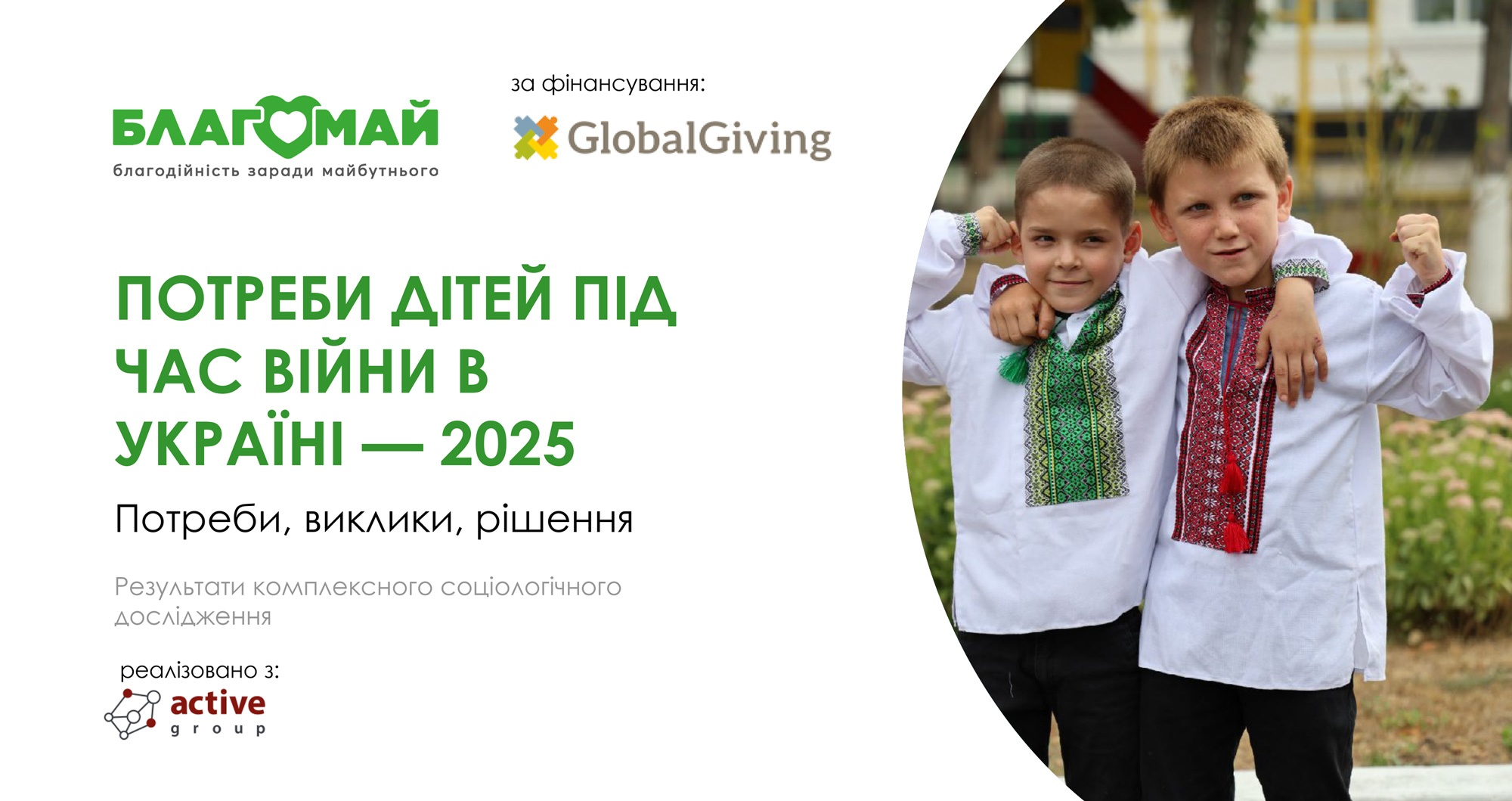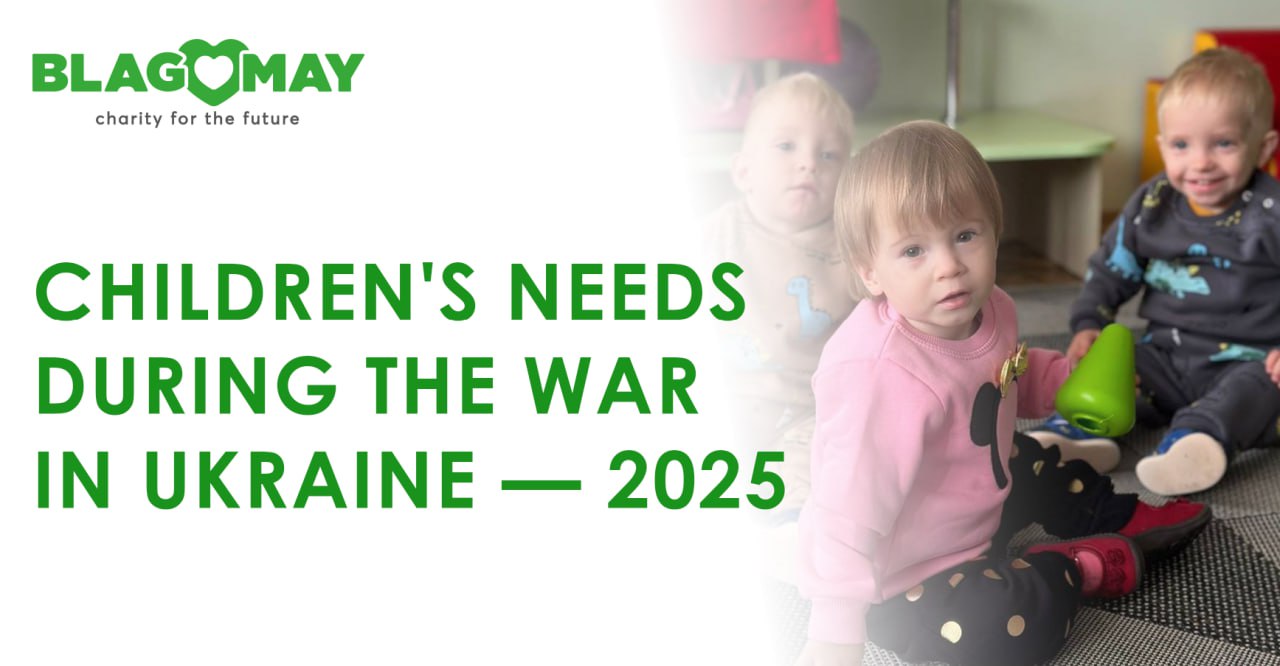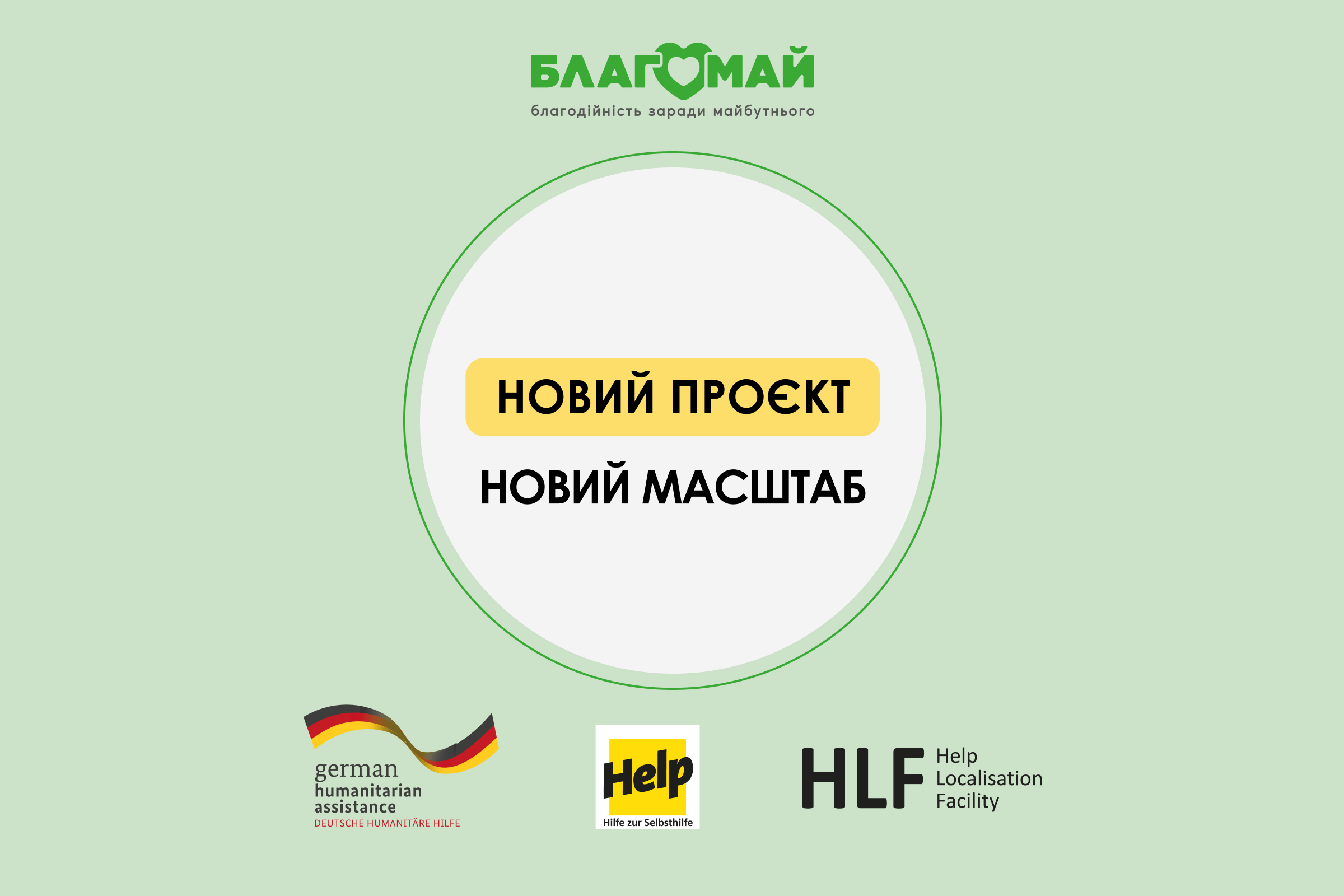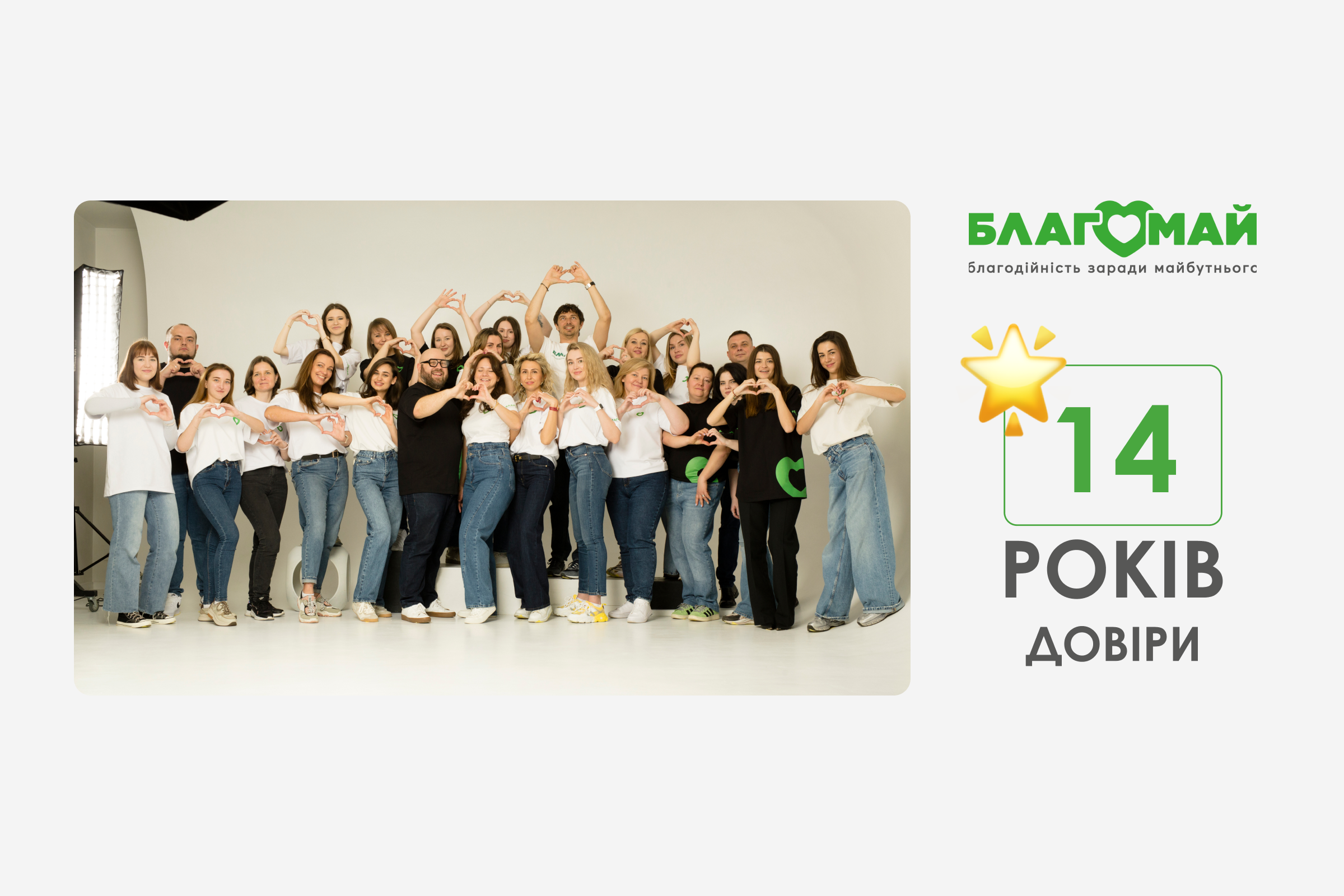

23/05/2025
That is why the charity foundation Blagomay conducted an in-depth sociological study to better understand the current needs of children in Ukraine, the challenges their families face, and what must be changed without delay.
You can download the research by the link
The study brought together insights from over 800 respondents across different regions of Ukraine — parents, guardians, social workers, families of internally displaced persons (IDPs), and caregivers of children with disabilities. These voices formed the basis for a comprehensive analysis across multiple spheres of life.

Material Needs and Living Conditions
One of the most pressing issues reported by respondents is the lack of basic necessities: food, clothing, medication, bedding, and hygiene products. This problem is especially acute in large families, IDP households, and families raising children with disabilities.
In addition, the housing situation is critical — families are forced to rent expensive, low-quality apartments that often lack proper living conditions, while state compensation or access to social housing is nearly nonexistent.
Education and Development
Parents express widespread dissatisfaction with the quality of school education, particularly in online formats. Complaints include an overloaded curriculum, a lack of quality textbooks, low teacher motivation, and poor conditions for learning — from the absence of shelters to power outages and overcrowded classrooms.
At the same time, there is high demand for extracurricular education: clubs, sports sections, creative workshops, and IT courses. Yet due to high costs and limited logistical access, most children cannot participate in these activities.
Medical Services and Mental Health
The condition of the healthcare system raises serious concern. Respondents reported inaccessibility of basic medical services, long waiting lines, a shortage of specialists, and high medication costs. The state rarely covers treatment or rehabilitation expenses.
Access to psychological support is only partial, while emotional exhaustion among children remains one of the most common challenges. Panic attacks, sleep disorders, aggression, bullying in schools, and anxiety are part of daily life for many children.
Support from the State and Charities
Most families do not consider state aid effective: it is either insufficient or obstructed by bureaucracy. In contrast, charitable organizations, volunteers, and community initiatives are the main sources of real help.
However, even in this field, it is crucial to match support to actual needs — sometimes humanitarian aid is low-quality or irrelevant to a family’s situation. Therefore, parents recommend that providers take the time to understand the true needs of vulnerable groups to offer effective, meaningful assistance.
This study is more than statistics — it’s a call to action.
Its results are already helping us and our partners better understand where and how to act. We thank everyone who shared their experience and believe that together, we can make children’s lives during wartime safer, more dignified, and full of opportunity.
We invite you to read the full research report at the link below — together, we can build a dignified and safe childhood even in the most challenging times!
Підтримайте нашу діяльність
Не залишайтесь осторонь. Діяти можна прямо зараз — підтримайте наші програми і станьте частиною змін.
Donate


